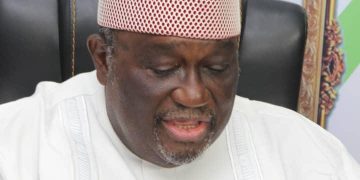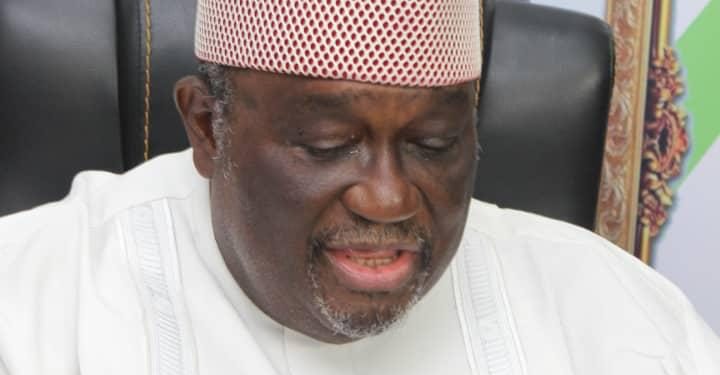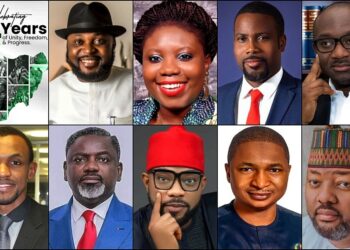By Grace Udofia
Professor Benjamin Osisoma is the President, Association of National Accountants of Nigeria (ANAN), a professional accounting association in Nigeria. He is a retired professor and clergy man with over 30 years of experience in the accounting field.
In this interview with The Heritage Times, Osisoma who recently marked his 100 days in office, examines reasons for the persistent corrupt practices among public office holders in Nigeria. He also provides a glimpse into the activities of ANAN, while also revealing his target goals.
He also speaks on the challenges faced by the association, especially regarding the quest for supremacy by two accounting bodies in the country, ANAN and Institute of Chartered Accountant of Nigeria (ICAN).
Excerpts:
How will the introduction of forensic accounting and investigation help in tackling corruption?
We are raising this issue of forensic investigation because corruption is one of the major banes of this nation. Corruption, fraud, everybody condemns it, yet it continues to thrive. It is in the Church, Mosque and offices. All we are doing is to do the best we can and hope that someday we will get there. I am not saying we will stop corruption, but we will reduce it. The reason corruption thrives is because the deterring factor is not working. When you see people go jail, for doing what is wrong, punished for offending the law of the land, people will learn.
Like the biblical quote which says “the judgment written against a sin is not expeditiously executed the children of men will never learn to live rightly”. Until you implement what has been written, people won’t learn to flee from corrupt practices. If we hail the offenders, how do we stop it from happening? But if somebody discovers that if he does certain things the society looks down on him, it will end. So long as we enjoy the loot and largess that come with it, there is no way corruption will end.
We berthed a forensic body for forensic accounting fraud prevention. When we started, we decided to go beyond ordinary forensic accounting. We said, let people be thought in forensic accounting and add fraud management because if you are talking about forensic accounting, you can’t narrow it only to accountants. But with fraud management, criminologist, police investigators and all kind of people can come under that to fight fraud. That is what we have started work on.
Initially, we wanted to bring fraud examiners from US to come and then we take their exams and be certified by them. But they said no way, that they will never outsource their certificate. They said we must come to them to be taught, examined and certified.
So, through one of our members, we started to replicate it here, went to our computer lab in Jos and reconfigured them to suit forensic tool kit lab. The first set of trainers looked like people doing surgery in theatre and took them to court.
There are rules of evidence you must observe and so we felt that it is not enough to dictate a crime, you must always know how to prepare for the court. So, we introduced the mute court trial and the Deputy Director of law school who was chief judge in Keffi appeared in court and let out how to package what is done for the court.
We have gone quite some long way. I was the pioneer chairman of board of trustees for the forensic training body. The society has taken a turn and has become chartered institute of forensic and fraud examiners with an exco.
Within my 100 days in office, we gave them strong support to set up a forensic academy in Abuja. The idea of the academy is where you have forensic tool kits lab, have training in different aspects of forensic work, finger printing, and recovery of data from charred documents and things like that.
Who are those to be trained?
They are primarily accountants because there is no way you can embezzle fund in an organization without an accountant. That is why governors and CEOs appoint people who can bend their principles. If people who are in the know are put there, I think, to some extent, we may begin to apply the brakes to some of these things.
How do you plan for ANAN examinations with the insecurity problem on ground, knowing that your exam centre in Jos?
One of the things that caught my attention when I was discussing with CPA of Ireland, was when he said they now run exams using tech and invigilate using technology.
We intend to bring in the technology that will allow people write exams from their house and the software will police the candidates.
How soon do we see this becoming reality?
We are already working on it. We have already talked to the examination committee. They bought the idea because we want to get the point where the exam will be broken into three parts, first is multiple type where the result will be generated immediately. The second one is filling in the gaps and the last one is case study. These are the ones you must meet and mark.
With this tech, candidates sit and write from the comfort of their homes and software monitors them, and whatever you do, someone will be monitoring from somewhere.
Will this curb exam malpractice?
It will.
Following the assertion that ANAN fellows are only patronized by public sectors, are you going to bring the private sector to ANAN?
We are already working with the private sector. ICAN started in 1965. We had ours in 1993, that is a long gap, almost 30 years difference. That has given ICAN a head start and ANAN is not competing with them.
We have always said it and will continue to say that ICAN is our elder brother. And we have no problem with them, the only problem is when the elder brother says he doesn’t want the younger brother, that is when we have quarrel. Apart from that, we have no quarrel whatsoever.
We are not in any way quarrelling with these things, what we are saying is let’s grow together, and build together for the progress of our nation.
How many accountants do we have in this nation? If every registered business outfit has one accountant, then we will need about 400,000 accountants, but between ANAN and ICAN, we don’t even have up to a 100,000. That is a serious shortfall. All we need to do is ensure that the people are well trained.
On the no competition between ICAN and ANAN, what are the things that you have put in place that would make people feel comfortable to go for ANAN instead of ICAN?
On the day we were given the IFAC recognition, the President of IFAC had declared ANAN to be the leading BAO in public sector in accounting management. It does mean that we are only in public sector as perceived by many, we are also recognized in private sectors.
So, when the students face this choice of where do I go to, is it ICAN or ANAN, what we do is to strive to show that if one is better than the other, then prove it by the quality of work that you are doing. When ANAN started there were shouts that it will destroy and bastardize standards, but today ANAN has defined standards in accounting.
Do you know IFAC has given us the responsibilities of developing accounting in other African countries like Botswana and Zimbabwe? We are exporting our brand of training to them. That is what we have to offer, the onus is now on the industries and those who consume our services to price us the way they want. Some may say ICAN is better, there is no problem with that.
When ICAN started, the emphasis was not on academic qualification. All you needed to do was just have a secondary school certificate then proceed to the foundation afterwards intermediate thereafter you go to professional. For ANAN, we said no to this, and needed a person to be a graduate from any university or polytechnic get your HND or BSc so that even without the professional qualification, you can still survive in the labour market.
Going forward, what are the legacies you want to leave behind?
I intend to change the matrix of accessing leaders in a given position. People always say I was a successful leader because I built this or that, I promoted this and that. For me I want to be remembered as a principle-centred ethical leader who established a just and fair system where everybody had equal rights. I am not saying that I won’t build, I will, l but one of my major tasks is the issue of the college.
My immediate task now is to establish the Nigerian college of accounting in better footings than what it was. I want to give them a befitting campus not just suitable for Nigeria but Africa as a continent. I learnt that when God raises a man in leadership, it is for him to solve a particular problem and when that problem is solved, he is satisfied. I don’t have to be a Benjamin solving Moses problem, but I have to be a good leader. There is something God wants me to do and once I do, it I am done.
Is the ANAN job affecting your family?
I came into office April 24, 2021, a couple of months before in October, 2020, I retired as professor from the university at the age of 70. I am no longer under any compulsion to go to the office. I left my office and surrendered the key because I am a proponent of when you leave office, you leave totally. Don’t leave office and hold on to the key depriving another of the privileges you enjoyed. In the month of May this year the department bade me farewell, so I don’t even have so much to distract me now. When people ask me to come and deliver a talk, I refuse and tell them that all my life I have delivered several papers, so it’s time to relax.
What is your reaction to the differences between the Charted Institute of Taxation and ICAN, according to your Acts?
You have touched a very wrong spot, the first time I heard of Charted Institutes of Taxation was in 1991, I wasn’t in ANAN or ICAN, I was just an accounting lecturer at the university.
And somebody, an ICAN member told me that we have found a formula that will finish ANAN. When I asked him what that formula was, he said the Institute of Taxation. He told me that when it becomes operational, it will reduce the ANAN certificate into a piece of toilet paper.
ICAN midwifed the establishment of the institute. Initially we were not bothered because everybody understands that accounting includes taxation, financial accounting, cooperate reporting, cost and management accounting, analytic and forensic review, all these are part accounting. All over the world when you are practicing accounting, all these are part of it, you cannot remove taxation and say you aren’t authorized to tow this part.
How can anyone talk about taxation without accounting, so we needed no other law but sadly the law was passed. And it stated that if you are not a member of the Chartered Institute of Taxation, you cannot practice tax administration in Nigeria. Even between ICAN and CITN that the law was established, it became a problem because friction came up between the two of them and they went to court.
This was blowing things apart, but ANAN from the onset had an understanding with CITN. We forged an alliance of mutual recognition with them so they recognized our members and we did recognized theirs too. So we never had that problem with them. If you are a fellow of ANAN, CITN automatically made you their member and so it was for us too.
When the problem with CITN and ICAN became unbearable, the Federal Inland Revenue Service (FIRS) decided to broker peace. So they called a tripartite meeting which initially was supposed to be for only ICAN and CITN, but ANAN insisted that they would join being a stakeholder in the field.
We insisted on that because the meeting might take place and deliberate on what will put us in peril and ANAN didn’t want that. We all sat down and came to agreement on issues that will make it easy for all accountants to practice their trade.
How do you all relate with yourselves, considering that the issues of supremacy between you all have been laid to rest like that of Universities and Polythenics?
As I speak to you today, there is no conflict between the three parties now. We don’t just have mutual understanding, but mutual recognition by all. I recognize and respect you and you do same to me and that’s what prevails amongst us.
I must add that I respect the current leadership of ICAN, I salute their President, CEO and Vice President. They seem to be more accommodating. I often tell them that the dividing line between trade union and the professional body is very thin.
What makes you a monopoly of knowledge because you belong to a particular profession?
We can see a silver lining in the cloud. I hope that one day these professional bodies will come together and fight for the betterment of the people not minding whether you call it ICAN or ANAN.




































